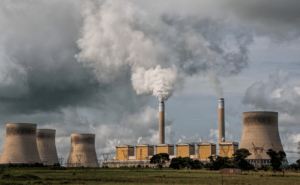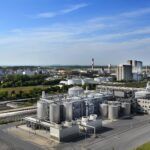Some sections of the industry are seeking to create a low-carbon emission economy by avoiding or reducing fossil-based carbon emissions or capturing these emissions for storage or use.
The bio-based industry can demonstrate efficient recycling and recovery concepts for its biogenic gaseous emissions. Turning biogenic emissions into something of value by producing valuable chemicals contributes to the industry’s ‘zero-waste’ biorefining objectives and abates climate change.
Biogenic gaseous carbon can be used
- as a feedstock for the conversion into platform chemicals;
- to increase the growth of biomass as feedstock for industrial exploitation; or
- to create energy solutions.
The specific challenge is to use biogenic gaseous carbon as a feedstock for the bio-based industry through:
- direct conversion into bio-based chemicals or intermediates; or
- growing new biomass sources.
Scope
Demonstrate the conversion of biogenic gaseous carbon into chemicals or intermediates for: further processing into value-added applications; or using to grow new biomass.
Eligible gaseous feedstocks within the scope of this topic are:
- C1-carbon emissions from biorefineries or any other bio-based operation, including anaerobic fermentation processes (e.g. in brewing and bioethanol production) and hydrothermal liquefaction and gasification of biogenic feedstock;
- and CH4 (methane) and CO2 from biogas or syngas plants.
It is considered that proposals requesting a maximum contribution of EUR 7 million would be able to address this specific challenge appropriately. However, this does not preclude the submission and selection of proposals requesting other amounts.
Expected Impact
EXPECTED IMPACTS LINKED TO BBI JU KPIS:
- contribute to KPI 1 — create at least one new cross-sector interconnection in the bio-based economy;
- contribute to KPI 2 — create at least one new bio-based value chain;
- contribute to KPI 6 — demonstrate at least one new consumer product based on bio-based chemicals and materials that meet market requirements.
ENVIRONMENTAL IMPACTS:
- reduce greenhouse gas (GHG; including CO2) emissions (expressed in CO2 equivalents) by at least 20% through the capture and use of the biogenic gaseous carbon from the value chain being addressed;
- help replace fossil-based products with bio-derived GHG-based alternatives; or prevent the use of fossil-based feedstock by introducing new bio-based products for needed applications for which there is no fossil-based counterpart;
- contribute to the EU’s 2050 long-term strategy for a climate-neutral Europe by replacing fossil-based material by using biogenic emissions as raw materials.
ECONOMIC IMPACTS:
- diversify the incomes of the bio-based sector(s) from which the targeted gaseous emissions originate;
- produce at least one B2B or B2C GHG-based product in sufficient quantities to allow validating the value chain.
SOCIAL IMPACTS:
- create new job opportunities in the bio-based sector in rural, coastal and/or urban areas;
- increase the competitiveness of European biomass producers and the bio-based industry by increasing: (i) feedstock and energy efficiency; (ii) business growth; and (iii) investment, while ensuring environmental sustainability and an increase in local biodiversity.
Deadline
03 September 2020 17:00:00 Brussels time







Leave a Reply